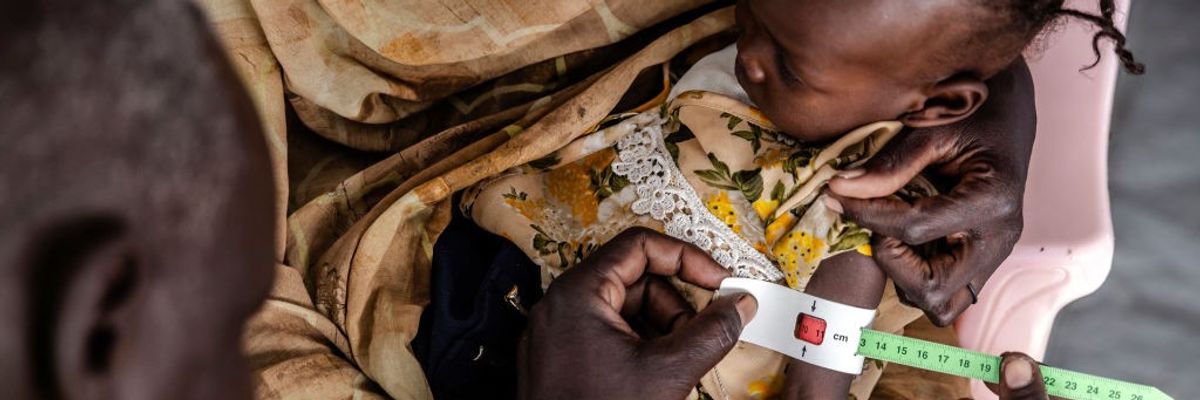More than 730 million people around the world faced hunger last year, including 1 in 5 Africans, with over half a billion people set to be chronically malnourished by the decade's end if current trends continue, according to a report published Wednesday by a United Nations agency.
One in 11 people globally went hungry in 2023, the latest U.N. Food and Agriculture Organization (FAO) State of Food Security and Nutrition in the World (SOFI) report revealed.
"The report shows that the world has been set back 15 years, with levels of undernourishment comparable to those in 2008-2009," according to the FAO. "An alarming number of people continue to face food insecurity and malnutrition as global hunger levels have plateaued for three consecutive years."
"Hunger is not something natural. Hunger is something that requires a political decision."
The agency noted significant variation in regional trends as "the percentage of the population facing hunger continues to rise in Africa (20.4%), remains stable in Asia (8.1%)—though still representing a significant challenge as the region is home to more than half of those facing hunger worldwide—and shows progress in Latin America (6.2%)."
"If current trends continue, about 582 million people will be chronically undernourished in 2030, half of them in Africa," FAO said, warning that "the world is falling significantly short of achieving Sustainable Development Goal (SDG) 2, Zero Hunger, by 2030."
FAO Director-General Qu Dongyu said in a statement that "transforming agrifood systems is more critical than ever as we face the urgency of achieving the SDGs within six short years. FAO remains committed to supporting countries in their efforts to eradicate hunger and ensure food security for all."
"We will work together with all partners and with all approaches, including the G20 Global Alliance against Hunger and Poverty, to accelerate the needed change," Qu added. "Together, we must innovate and collaborate to build more efficient, inclusive, resilient, and sustainable agrifood systems that can better withstand future challenges for a better world."
FAO argued that "achieving SDG 2 Zero Hunger requires a multifaceted approach, including transforming and strengthening agrifood systems, addressing inequalities, and ensuring affordable and accessible healthy diets for all."
"It calls for increased and more cost-effective financing, with a clear and standardized definition of financing for food security and nutrition," the agency added.
The new report comes ahead of this November's scheduled G20 Global Alliance against Hunger and Poverty Task Force Ministerial Meeting in Rio de Janeiro, Brazil. On Wednesday, Qu praised Brazilian President Luiz Inácio Lula da Silva—who currently chairs the G20—for centering food security in the bloc's agenda.
In the 2000s, Lula's leftist government implemented plans including Fome Zero (Zero Hunger) and Bolsa Familia (Family Allowance) that significantly reduced malnutrition and poverty in Brazil.
"We need to build on the progress achieved in this region, and share this experience with other regions, especially Africa," Qu said.
Speaking in Rio de Janeiro on Wednesday, Lula said that "hunger is not something natural. Hunger is something that requires a political decision."
Cindy McCain, executive director of the U.N.'s World Food Program (WFP), said Wednesday that "a future free from hunger is possible if we can rally the resources and the political will needed to invest in proven long-term solutions."
"I call on G20 leaders to follow Brazil's example and prioritize ambitious global action on hunger and poverty," she continued. "We have the technologies and know-how to end food insecurity—but we urgently need the funds to invest in them at scale."
"WFP is ready to step up our collaboration with governments and partners to tackle the root causes of hunger, strengthen social safety nets, and support sustainable development so every family can live in dignity," McCain added.




